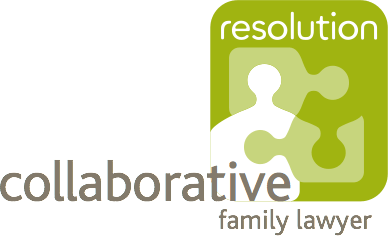Do I need to use mediation for my divorce?
Mediation is now the most common way of making financial settlements and arrangements for children during divorce. It is generally much faster and less costly than dealing with your divorce through the courts, as well as allowing you to keep proceedings more amicable, with less potential for conflict.
While there are situations where mediation may not be the right approach, it can be effective for most divorcing couples, even where there are complex issues to sort out.
How does divorce mediation work?
Instead of going to divorce court and asking a judge to decide how these issues should be resolved, you and your former partner will instead discuss any points of disagreement and come up with solutions yourselves, with the support of a trained mediator.
The mediator is not there to tell you what to do – instead they act as a neutral third party to advise you on any points of law and defuse any potential for conflict. This helps to keep the process productive and give you both confidence about your legal positions.
Mediation usually takes place over around 3-5 sessions, although this will depend on how complicated the issues you need to resolve are and how quickly you can agree solutions.
Any agreement you make through mediation will be recorded in a ‘memorandum of understanding’. This is not legally binding, but you can make the terms binding by applying to a family court for a Consent Order if you wish.
Is divorce mediation right for you?
Mediation can be effective in most circumstances, including where there are complex issues to resolve. However, there may be some situations where mediation may not be suitable, such as where there has been a history of domestic abuse, one of you is bankrupt or where your relationship has become so acrimonious you simple cannot work together.
When getting divorced, you will need to attend a Mediation Information and Assessment Meeting (MIAM) to see if mediation could work for you. You and your former partner can attend a MIAM together or separately.
If you decide not to go ahead with mediation, you will be given a reference number which you will need to include in your application to have a court deal with your divorce.
Alternatives to mediation for divorce
If you feel mediation is not right for you, or you cannot reach an agreement through mediation, there are several alternatives you can consider.
Collaborative law
This is another non-confrontational approach where you and your partner will attempt to agree the details of your divorce voluntarily. However, unlike with mediation, you will each have your own legal representatives with you.
You, your former partner and your respective lawyers (who must be trained in collaborative law) will meet for a series of four-way ‘round the table’ meetings. You will then discuss the issues you need to sort out with the support and advice of your lawyers.
Collaborative law can be a good choice where there are more complex issues to resolve and where you feel having your own lawyer with you during negotiations would help. However, it is normally more expensive than mediation.
Divorce arbitration
You can also opt to have a qualified arbiter decide on the details of your divorce for you. You and your former partner would need to agree to abide by the arbiter’s decision and you will then both be able to present your cases to them. The arbiter will then decide on the issues e.g. how your finances will be divided.
While arbitration can allow you to get a fast resolution to your divorce, it does involve placing the decision into someone else’s hands, which could mean you do not get the outcome you were hoping for. However, it is generally much less costly and faster than court proceedings.
Taking your divorce to court
If you cannot sort out your divorce voluntarily, you may need to apply to a court for a judge to decide how the issues in disputes should be dealt with. While this will give you a firm resolution, it can be costly and very time consuming, as you will have to wait for a court date. It can also make your divorce much more acrimonious, which can be a particular problem if you have children together.
Speak to us today to see whether mediation is right for you
At Atkins Hope, our friendly, empathetic family law solicitors can help guide you through your divorce, helping you to find amicable solutions to any practical issues you need to sort out. We can also advise on where other options may be more appropriate for your circumstances.
Our Head of Matrimonial Law, Juliet Adelman, is a qualified mediator and Resolution-accredited specialist in Child Abduction and Matrimonial Finances (Advanced). Juliet’s expertise means she can offer a highly effective mediation service, even where there are challenging issues to resolve, such as complex assets in financial settlements.
Family law solicitor Priya Baskaran is a member of the Law Society’s Children Panel and a Resolution-accredited specialist in domestic violence and public law children work. Priya is therefore well-qualified to ask with more complex and contentious family law matters where alternatives to mediation may be more suitable.
For clear, practical advice on how mediation works and whether it could be the right approach for your divorce, please get in touch with our specialist family mediation solicitors in Croydon, Medway, Blackheath and Guildford now.








